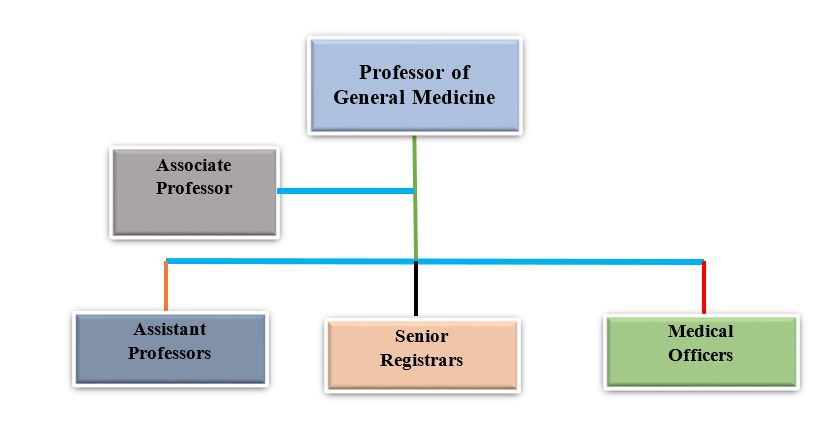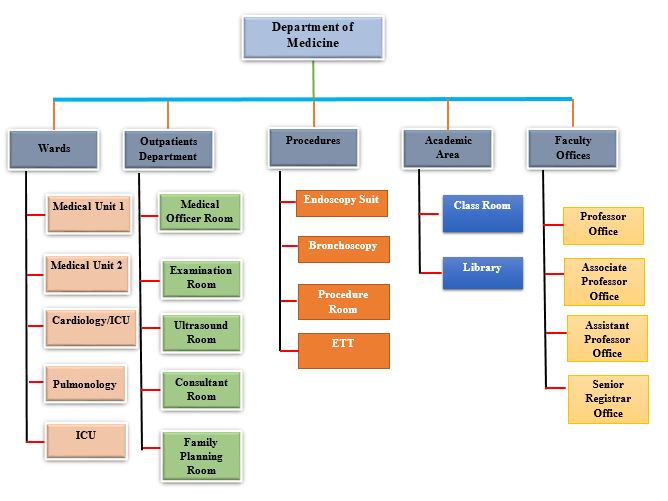- General Medicine Department’s Facilities
- General Medicine Organogram
- General Medicine Research Projects
Positional Organogram

Functional Organogram

For further updates, keep visiting our website.
The Division of General Internal Medicine is committed to:
1. Providing compassionate, evidence-based, longitudinal care to adults with a special emphasis on those with multiple chronic medical conditions.
2. Giving high-quality cost-effective care to patients hospitalized at Gulab- devi hospital.
3. Educating medical students, residents and other health professionals in the art and science of being a good doctor.
By sustained effort and commitment to lifelong learning and discovery through diversity of experience and opinion within an engaged, respectful, and open community, we strive to uphold the public trust, discover new knowledge, and contribute importantly to the alleviation of suffering and to the cure of human disease.
The Department of Medicine aims to improve health of the people through quality, patient-centered care, innovative research and education of the next generation of physicians.
At the end of the Final Year Clinical Rotation, medical students should have a well-developed foundation in the following areas to provide for patients in the inpatient setting.
Basic Clinical Skills:
Students will be taught to develop and refine their skills in:
1- history and physical examination; obtain a patient’s history and physical exam in a logical, organized, and thorough manner.
2- diagnosis: prioritize patient problems and formulate a differential diagnosis based on the key findings from the history and physical examination and laboratory evaluation. diagnosis based on the key findings from the history and physical examination and laboratory evaluation.
3- treatment: develop a logical and efficient management strategy, begin to understand risks, benefits, and compliance issues in choosing a treatment.
4- test interpretation: interpret blood smear, gram stain, electrocardiogram, chest X-ray, and urinalysis.
Communication Skills
Students will be taught to develop effective communication skills with patients, families, and other health care providers.
with patients: demonstrate listening skills, respond to the patient’s emotional needs and point of view, identify hidden agendas, and provide clear explanations.
with colleagues: demonstrate accurate and organized written and oral presentations of new admissions and follow-up patients.
Professionalism:
Students will be taught to recognize and act within the limitations of their knowledge and skills and practice in a scholarly manner to foster lifelong learning
taking initiative, being curious
seeking feedback from your team members
demonstrating honesty and integrity in all professional activities